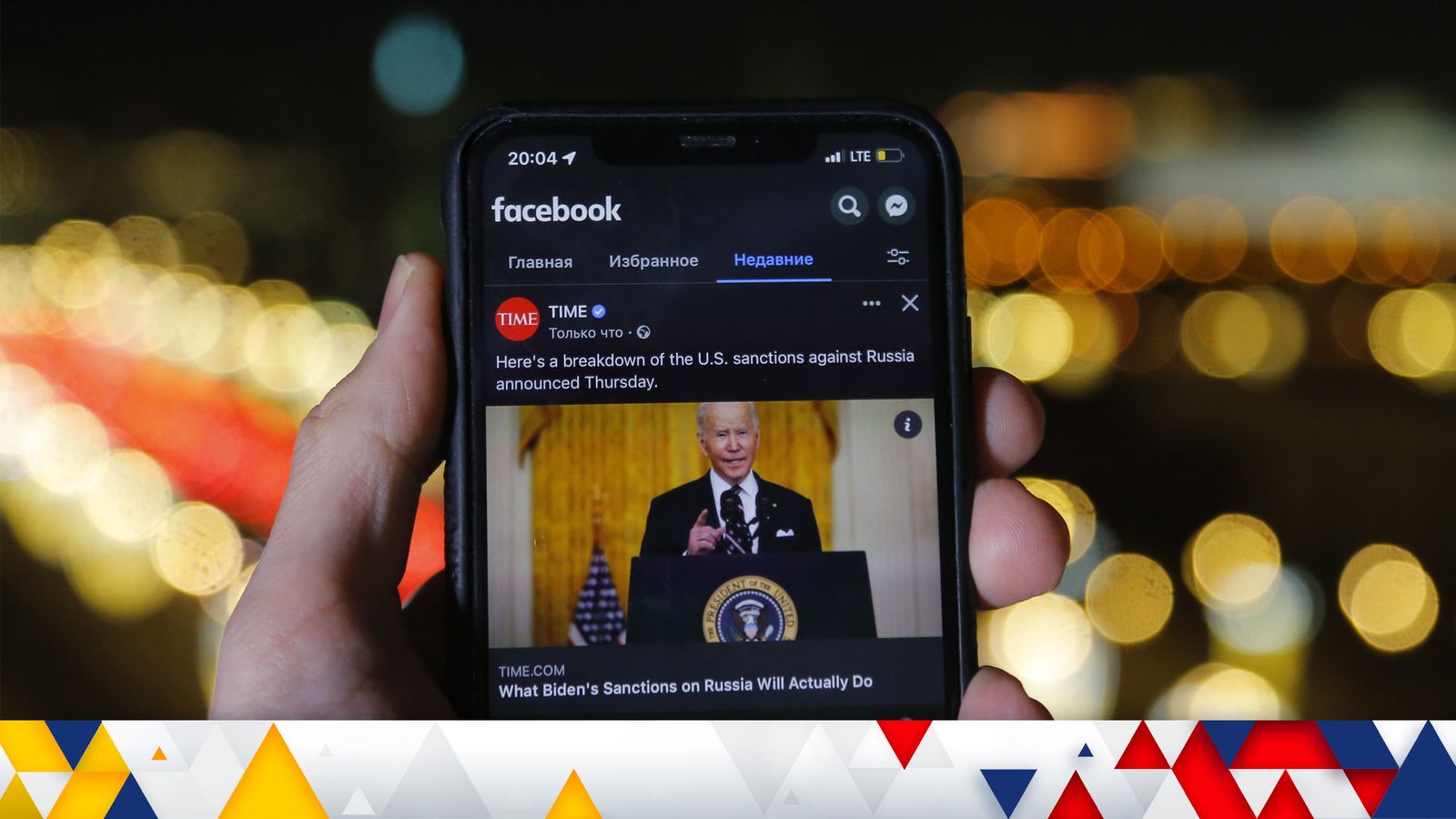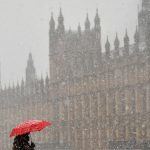Russia has said it is partially restricting access to Facebook after the social network limited the accounts of several Kremlin-backed media outlets over the invasion of Ukraine.
Russia’s state communications regulator Roskomnadzor said it had demanded Facebook lift the restrictions it put on state news agency RIA Novosti, state TV channel Zvezda, and pro-Kremlin news sites Lenta.ru and Gazeta.ru on Thursday.
Facebook’s parent company, Meta Platforms Inc, said it refused to stop fact-checking Russia’s state-owned media.
Key developments:
‘We refused,’ Nick Clegg says
Former deputy prime minister Nick Clegg, Mega’s head of global affairs, said: “Yesterday, Russian authorities ordered us to stop the independent fact-checking and labelling of content posted to Facebook by four Russian state-owned media organisations. We refused.
“As a result, they have announced they will be restricting the use of our services.”
Sir Nick Clegg promoted to president at Facebook owner Meta
Doubts over Facebook’s ability to innovate as it sees first-ever fall in user numbers
‘Alarming’ growth in fraud in the UK as scam adverts dupe victims out of ‘large sums of money’, MPs warn
Roskomnadzor said its “partial restriction” on Facebook took effect on Friday, but did not clarify what the move means.
In an official statement, it described its actions as “measures to protect Russian media”.
It said Russia’s Foreign Ministry and the Prosecutor General’s office found Facebook “complicit in violation of fundamental human rights and freedoms, as well as the rights and freedoms of Russian nationals”.
Please use Chrome browser for a more accessible video player
Russians should keep using apps to ‘express themselves and organise for action’
Meta has partnered with third-party fact-checkers such as Reuters to label and rate content for veracity. Content rated false, altered or partly false is shown to fewer users.
Mr Clegg said “ordinary Russians” were using Meta’s apps, which also include Instagram and Whatsapp, to “express themselves and organise for action” and said the company wanted them to continue to do so.
It comes as Moscow increased pressure on domestic media, threatening that reports containing what it describes as “false information” regarding its military operation in Ukraine would be blocked.






















